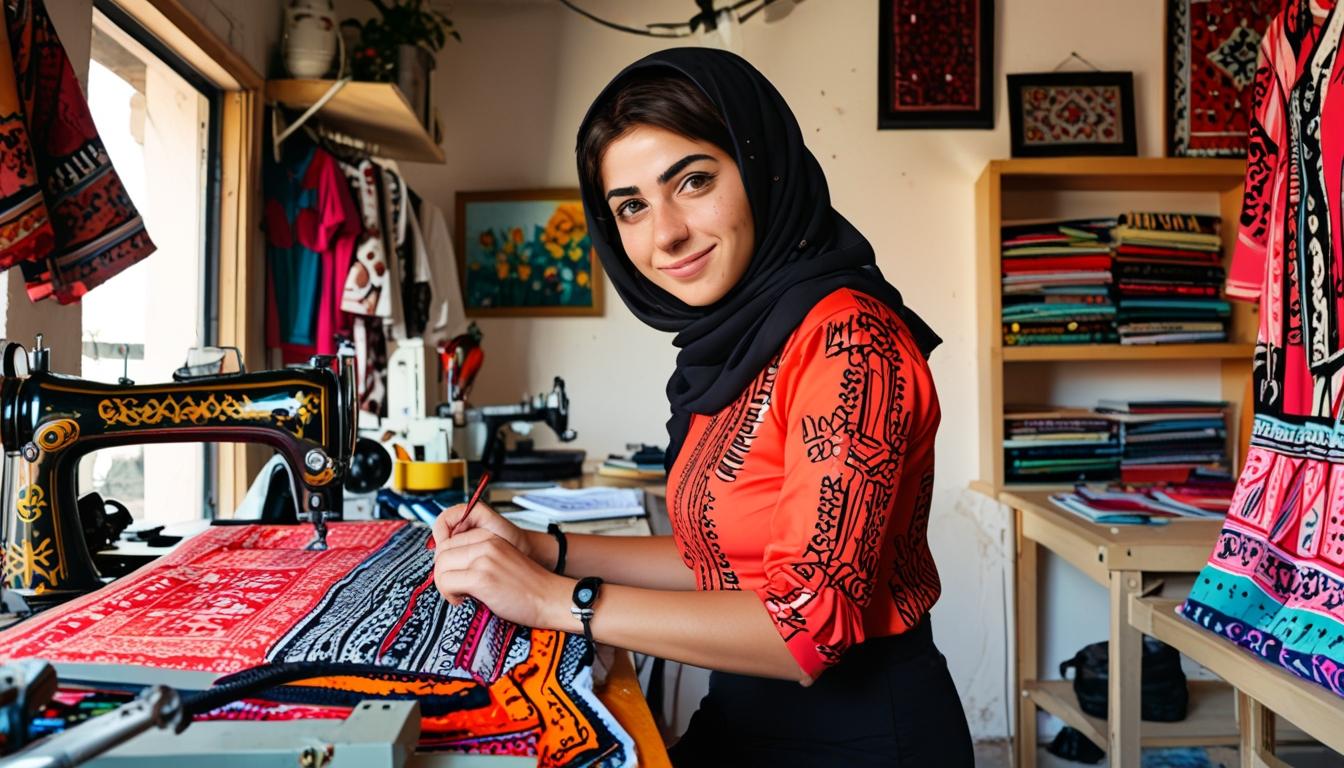Rozan Al-Khazendar launches a clothing brand to revitalize Gaza and support local communities amid ongoing conflict.
A woman from the Gaza Strip, Rozan Al-Khazendar, has taken significant steps to revitalize the war-torn Palestinian enclave through her newly launched clothing brand. Al-Khazendar, who founded the Rozza Agency, a company specializing in corporate design and digital business solutions, is collaborating with Kiyomi Kitamura, the owner of Amal Falestini, a mail-order business based in Otsu, Shiga Prefecture, Japan. The aim of this partnership is to create a sustainable business model that supports the people of Gaza.
Al-Khazendar founded Rozza Agency in 2014, starting her business from a room in her home in Gaza City. As a 39-year-old entrepreneur, she emerged as a rare female presence within the predominantly male-driven Palestinian society, where she has made it a priority to identify female role models and nurture talent. Her journey took a dramatic turn in October 2023 during a business trip to Tunisia when Hamas launched a surprise attack on Israel. Unable to return to her home, she found herself stranded in Egypt, the main gateway to Gaza, while her family sought refuge, and approximately 20 of her employees were displaced.
Recalling the chaotic events, Al-Khazendar reflected, “All my dreams were gone. It felt as if my heart had stopped beating.” In desperate need to raise money to evacuate her family, she focused on her design work using just a single computer. Ultimately, her family reached her in Egypt several months later, alleviating some of her distress.
Around this time, Al-Khazendar reconnected with Kitamura, whom she first met at a business event in Gaza in 2017. Kitamura, whose business specializes in selling Palestinian embroidery products, formed a supportive friendship with Al-Khazendar throughout their collaborations. During their conversations, Al-Khazendar shared her emotional struggles, telling Kitamura, “I have no power left.” In response, Kitamura encouraged her, remarking, “Please don’t give up,” which Al-Khazendar described as a surge of hope.
Kitamura’s business name, Amal, translates to “hope” in Arabic, and Al-Khazendar expressed that she felt renewed strength, stating, “Hope had come.” Amid the escalating living costs and severe supply shortages in Gaza, she began to support her employees by ensuring they received their salaries. Al-Khazendar articulated the importance of work in maintaining dignity, saying, “Work makes people positive. It helps preserve human dignity.”
Despite limited job opportunities in an unsafe environment, Al-Khazendar creatively engaged her team by assigning them “fake jobs” to keep spirits high and maintain productivity. She encouraged them to brainstorm product names, providing salaries out of her own funds when necessary.
Kitamura later proposed the idea of launching a clothing brand to create a sustainable way to assist both Al-Khazendar and the community in Gaza. This initiative would channel revenue from product sales to support Al-Khazendar’s team and the people of the region.
Following a short-lived ceasefire in Gaza in January, Al-Khazendar faced additional challenges when she discovered that her office in Gaza City had been looted and partially collapsed. Nevertheless, she remains committed to rebuilding and advancing her business with the help of her employees.
The new clothing brand, named “Pupa,” symbolizes the resilience of Gaza’s inhabitants as they aspire to rebuild their lives. Al-Khazendar articulated her vision by stating, “One day, a beautiful butterfly will emerge and take flight.” In March, Kitamura and Al-Khazendar launched a website to sell T-shirts in Japan, featuring designs that convey their emotions and messages regarding Gaza. This collaboration marks a critical step toward utilizing business as a vehicle for hope and empowerment for those affected by conflict.
Source: Noah Wire Services




